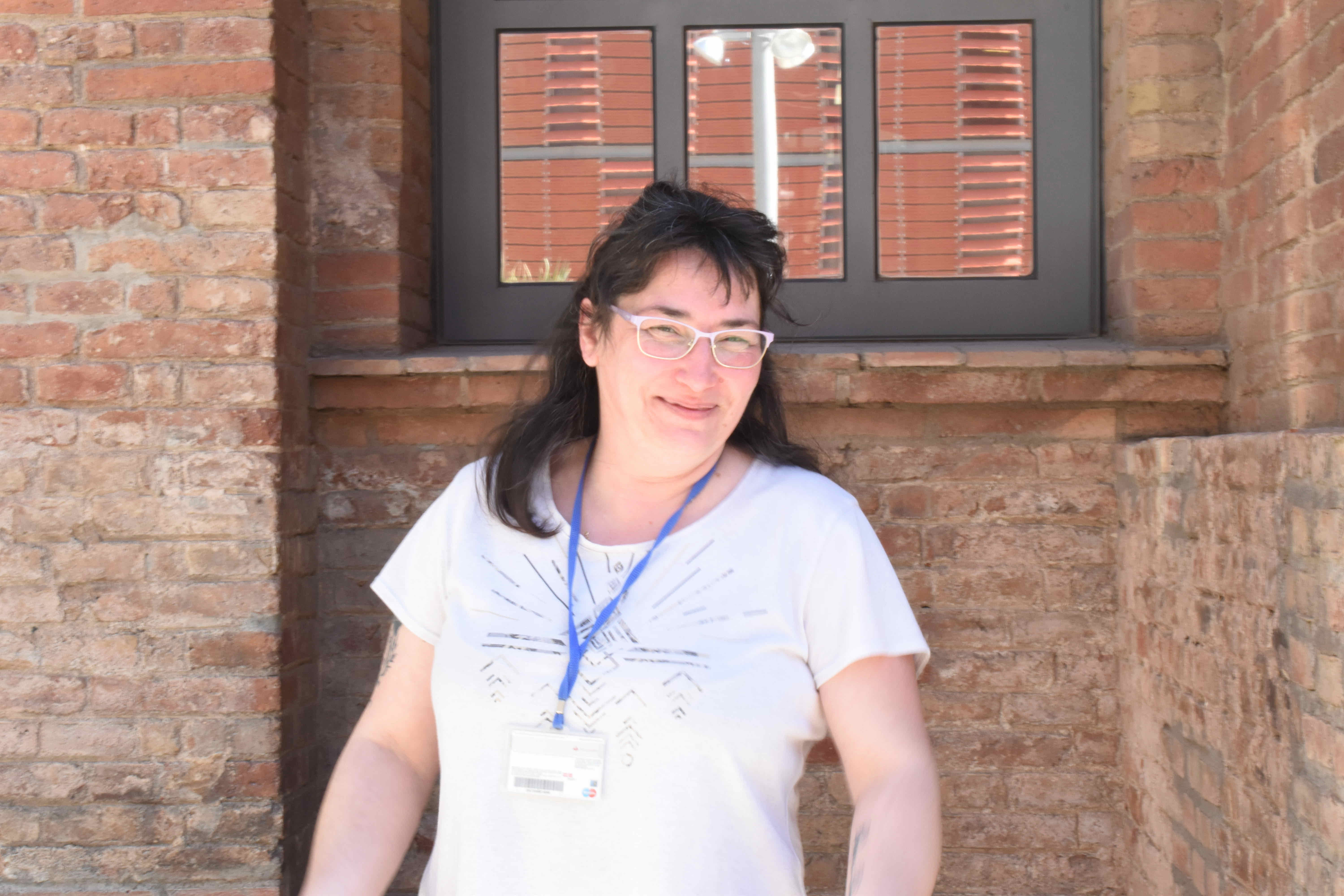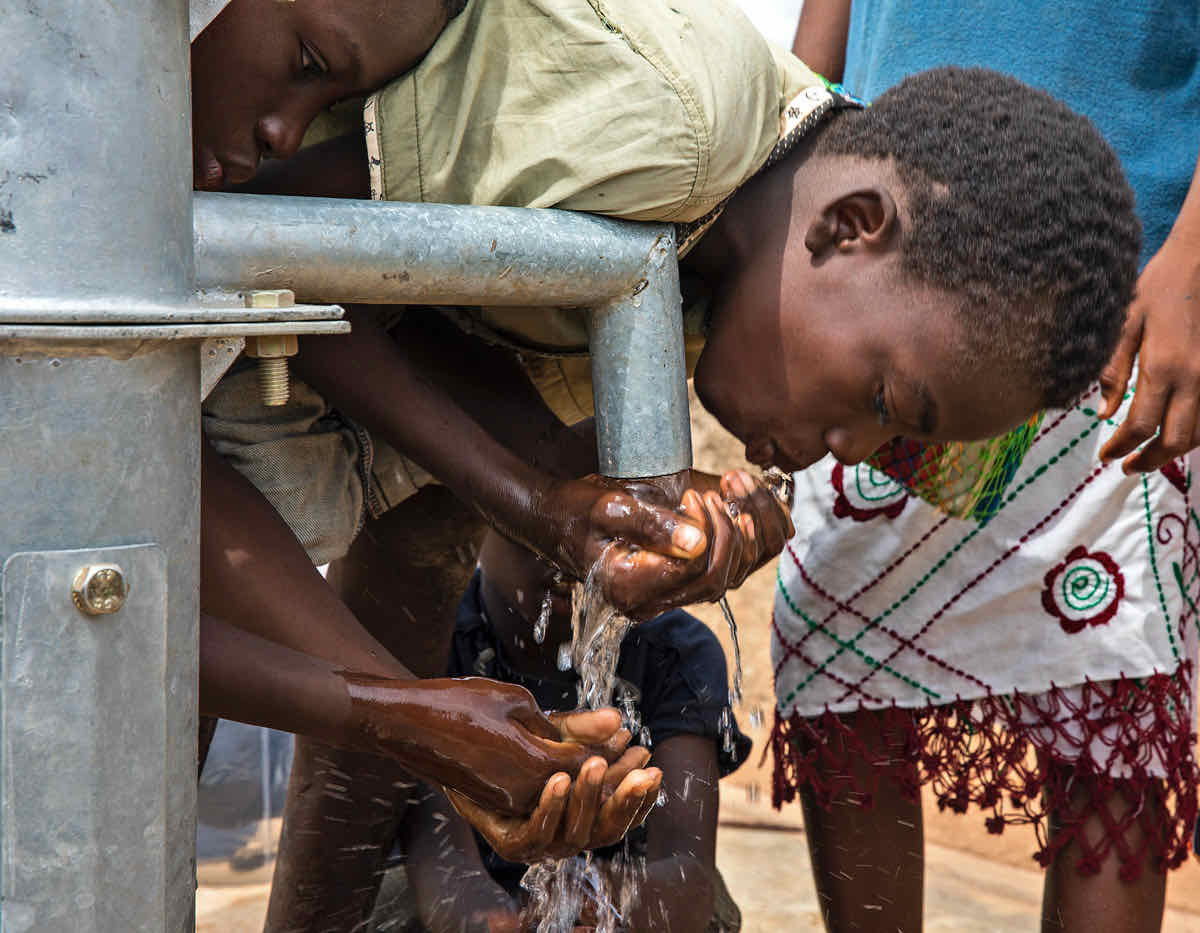Cristina Cols: "Universities can complement the training they offer with activities and spaces that encourage solidarity, cooperation and sustainable development".
Cristina Cols: "Universities can complement the training they offer with activities and spaces that encourage solidarity, cooperation and sustainable development".
We interview Cristina and Christian, who present us the project of the entity Water for the Sahel, subsidized in the annual call for solidarity projects of social commitment and sustainable development.
 Cristina Cols, a member of the administration and services staff of the Poblenou Campus Library, and Christian Jacquemot have known each other for years and have been collaborating with the organization Aigua per al Sahel. In this interview they will tell us more about their experience and the project they have presented that has been awarded to be executed during 2022.
Cristina Cols, a member of the administration and services staff of the Poblenou Campus Library, and Christian Jacquemot have known each other for years and have been collaborating with the organization Aigua per al Sahel. In this interview they will tell us more about their experience and the project they have presented that has been awarded to be executed during 2022.
Interview
What made you become a member of Aigua per al Sahel and what role do you have within the organization?
[Cristina] I had been in contact with and interested in the whole conflict of the Saharawi people for a long time, but it wasn't until I was talking to Christian, who was actively involved with the NGO Aigua per al Sahel, that I saw that I could also give a hand. So, for the last five years I have been collaborating with administrative tasks and monitoring of projects, whether it be reviewing invoices and budgets, updating databases, among others.
[Christian] Passionate about travel, which encourages human encounters, I have long felt the need to share leisure and help with people in difficulty. Fifteen years ago, thanks to mutual friends, I got to know Aigua per al Sahel and the NGO's cooperation activities in Burkina Faso. The way of approaching the projects with the associations and local authorities, the fact of devoting almost 100% of the economic resources to aid, the proximity to the beneficiaries convinced me that Aigua per al Sahel was the best way to get involved in cooperation and solidarity projects. Currently, I am responsible for Aigua per al Sahel projects and also treasurer. I am also a volunteer in a French NGO working in Burkina Faso.
Can you explain to us what Aigua per al Sahel does and give us a brief summary of the project "Right to water and health: rehabilitation of a drinking water well"?
Aigua per al Sahel is a small NGO that is in direct contact with other local NGOs, especially those that focus on covering basic needs in terms of water supply, particularly in rural areas, where sometimes there is not as much help as in the big cities. Therefore, a large part of our task is to look for funding to be able to help and carry out projects that are being carried out locally in this area.

In this case, the project "Right to water and health: rehabilitation of a drinking water well" focuses on improving access to drinking water by rehabilitating a well in Hiela (Burkina Faso), in order to comply with WHO recommendations regarding water quality: ensuring that it is safe to drink, that it is protected against contamination and that it is located less than 500 meters from the village....
In this way, two main objectives are sought: on the one hand, to reduce the number of infectious diseases derived from contaminated water and, therefore, infant mortality, associated with this problem; and, on the other hand, to reduce the work overload of women and children (especially girls), and thus increase their free time and their possibilities of empowerment and schooling, which also has a favorable impact on the family economy.
Has Covid-19 affected project planning and is there any impact expected?
In general, the feeling is that Covid-19 has had little impact on the area where we work. It is true that during the first months of the 2020 confinement, some projects had to be stopped because there was no supply or workers from the big cities, where there were more restrictions. Also the volunteers here were unable to go, but today it goes unnoticed among other diseases such as malaria. In this sense, it is not expected to have any impact on the current project. On the other hand, we have found that we have had to change the location of some projects due to security issues, for example due to threats of terrorism in the area.
We know that the project works in accordance with the Sustainable Development Goals (SDGs) and the 2030 Agenda. To what extent do you think that the field of cooperation takes them into account?
From Aigua per al Sahel we have been working for years in line with the Sustainable Development Goals, especially SDG 6. Clean water and sanitation; but, in this case, also with SDG 5. In the field of cooperation, there are many projects that are aligned with the 2030 Agenda and often end up touching different SDGs, both directly and indirectly. In this sense, for example, we know that our project will have a positive impact on other local associations that have different projects and that are aligned with different SDGs that we do not touch directly. Therefore, they are very present in each of the projects.
As a member of the university community, what do you think is the role of universities in the field of solidarity, cooperation and sustainable development?
Well, to begin with, the possibility of making financial contributions to solidarity and cooperation projects, as in the case of the UPF Solidarity grants, is already a way of collaborating in this type of project. Also, it can play an important role in terms of visibility and dissemination, especially important in the case of small NGOs like ours, which perhaps do not usually have as much impact. This can help to channel the interest of students in this area by making them aware of different ways to participate and take action. On the other hand, it can also help to sensitize that part of the university community that may not be as aware. Therefore, universities can help to complement the training they usually offer with activities and spaces where solidarity, cooperation and sustainable development are promoted.
